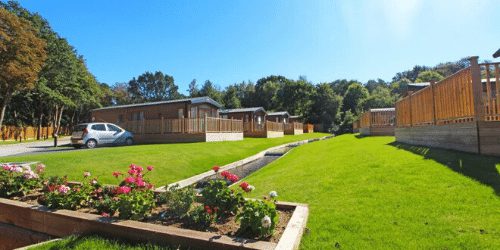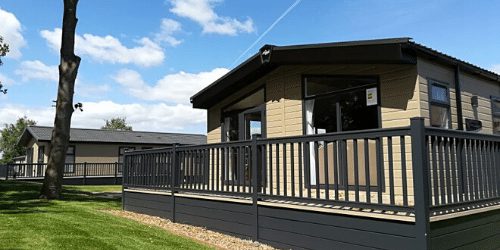As with anything you can expect to make money from in the UK, your holiday home is going to incur tax. This means that each year, you will need to set enough money aside to clear with HM Revenue and Customs. HMRC, who manage taxation for payroll services as well as for sole traders and limited companies, will expect you to show honesty in the tax you pay on your income. It is always important to keep your books balanced and this is why we have collated some information as a simple Holiday Homes Tax Guide.
LOOKING FOR A HOLIDAY HOME?
If you're not sure how tax applies to holiday homes in the UK, don't worry. In this guide, we will explore the basics of taxation, as well as anything you need to know about communicating with HMRC long term. Providing you save enough money to pay for tax each year, and that you are able to show your mathematics, you will have nothing to worry about. In fact, HMRC has actually tried to make the process easier for business owners and sole traders over the years!
Do you have to Pay Tax on a Holiday Homes?
What You Won't Have to Pay For
Holiday homes sit in their own little category when it comes to tax. That is, you won't have to worry about paying for council tax each month, and you also shouldn't have to think about stamp duty. What's more, for the longest time, people who own and let their holiday homes have been able to take advantage of special tax reliefs. It is always worth exploring these benefits before you think about filing your return for the year. This is great news for anyone who may be new to letting their holiday home or static caravan. But where do you start when it comes to navigating the tax process?
Filing and Paying for Tax
If you let a holiday home, you will need to file a self-assessment tax return each year with HMRC. This has become easier to do thanks to the government's online tax portal. You can choose when your accounting year starts and ends, but many people choose to keep things simple by running from 5th April one year to 4th April the next. This is because 5th April is the end of the tax year for HMRC.
Once you have passed 4th April, you will need to file a tax return for any money you have made in the period up to that point. If you wish to file by paper, you can do so by the end of October. Choose to file online, however, and you will be able to hand in paperwork by the end of January the next year, as well as pay in full. There are lots of perks to filing tax online. For one thing, much of the process is automatically handled for you. We won't go into much more detail here as you will need to read up on more information if you'd like to file a return. However, the process is often less hassle than people can make it out to be.

What Tax Benefits Can You Get From Letting a Holiday Home?
Letting a furnished holiday home means that you can benefit from several tax reliefs directly offered by HMRC. Your property will need to align with rules which declare it to be an FHL or Furnished Home Let. We will cover these rules shortly.
The money you make from letting your furnished home could result in such reliefs as:
• Capital allowances, or rebates, for certain fixtures. For example, you can seek relief and expense for furniture, decoration and equipment needed to run your home.
• You could also claim relief through Capital Gains. This means a small amount of money could be released from your return in the form of Entrepreneurs' Relief, Trader Loans Relief or Business Asset Rollover Relief. Both HMRC and your tax return's notes will help you understand how each of these reliefs work.
You may even be able to claim money back if the profits from your property tie in with your pension. Again, for further details, it is always worth consulting with HMRC or asking for advice from a financial advisor. You can also claim profit and loss against your income tax. This means you will also be able to account for expenses on your tax return. These will let you claim back money that you owe based on investments you have made. Do be aware that allowable expenses are those which directly impact your business and not your personal use. However, this does mean that you may be able to claim for energy use and travel. You could also claim relief on anything from advertising and mortgage or loan interest to gardening costs and accounting. You may even wish to let your property on a partnership basis, meaning that you will both split the costs of your tax bill.
Does Your Property Qualify as a Furnished Home Let?
To be able to take advantage of any of the above, you will, of course, need to make sure your property operates as an FHL. Luckily, HMRC is very clear on these rules, so you should know where you stand before you apply or fill out your return. However, let's take a quick look at what you can expect from the general criteria.

You Will Need to Let and Rent for a Certain Period of Time
To qualify for much of the tax relief available for your holiday home, your property should be available to let for up to 30 weeks, or 210 days a year. In addition to this, you should also let your property on a commercial basis – as a holiday home – for at least 15 weeks, or 105 days.
You should also bear in mind that HMRC views these criteria on what it deems to be a 'short term' basis. This means that anyone renting your home cannot do so for longer than 155 days total in a given year.
If you're unable to meet these requirements one year – but you did the year before – HMRC can offer a 'grace period' where you won't be penalised. However, it is always worth checking this with an advisor.
You Will Need to Furnish Your Holiday Home
You may well have surmised this already – but to qualify as an FHL, your holiday home should be fully furnished. That means you will need to supply furniture, white goods, fire safety equipment, power and water connection facilities – and more. Essentially, you will need to make sure that your property is ready for someone to live comfortably in – not an empty shell, ready to be filled.
You Need to Run the Holiday Home for Profit
You need to make it clear to HMRC that you are running your holiday home rental like a business. That is, you should be looking to clear a profit each tax year. HMRC can be lenient in some cases, but it is never worth being too careless in this regard. Make sure to keep documents which prove your intentions clear, and where possible, partner with a lettings group. These actions will often be enough to satisfy these criteria.
Your own Holiday time won't Count
When taking into account the letting time of the property, any time you, your friends or family spend in your home won't be covered. That is, of course, unless you charge them for it. Once again, this falls in line with HMRC's view of what counts as a business, and what doesn't. Do also remember that your first year operating will be classed as probation. Therefore, you are going to need to be very careful to follow HMRC's regulations, especially during this period.
Other Things to Bear in Mind
Holiday homes tax can seem like a minefield. However, providing you take your time reading HMRC's rules and regulations, it is unlikely you will have any hassle in claiming for relief. However, there are still a handful of points you should keep in mind.
• Make sure that you register your intent as a business with HMRC within the first three months of you making money from rent.
• You will start paying a tax rate of 20% once you earn more than your personal allowance threshold. This will change, generally, with each year's Budget. Upper thresholds of 40% and 45% will apply depending on how much you make. Always check HMRC's advise on this for the latest details.
• You may need to register your holiday home, or even a portfolio, for VAT. You will need to register and pay for VAT if your income exceeds a specific threshold. Therefore, do check with HMRC for current figures to make sure you are following the right process. VAT registration runs separately to self-assessment, which means you will need to file a new return on top.

Holiday Homes Tax - Don't Panic!
Paying for tax on a furnished holiday let doesn't have to be a nightmare. In fact, HMRC has made it easier, and even more affordable, for renters over the years. Consider the points made above, but always do consult a financial advisor or a member of the HMRC team if you have any specific concerns. Start claiming for tax reliefs, and you could be making big profits from your lets in no time at all. For further information contact HMRC or your accountant.
The advantage of purchasing a non-brick built structure for a holiday let is of course the cost. For example, you can purchase a holiday home in the Lake District at a fraction of the price you would pay for a traditional brick built home. For further reading see our article on 'What to Remember When Buying a Holiday Home'.